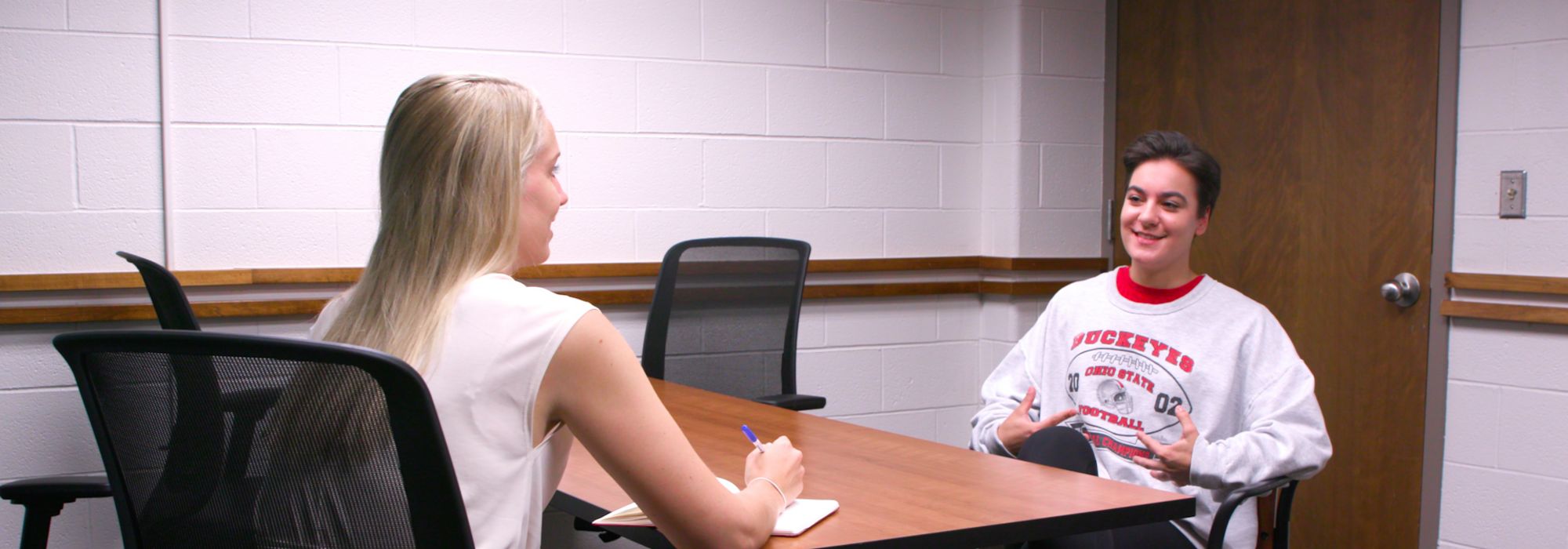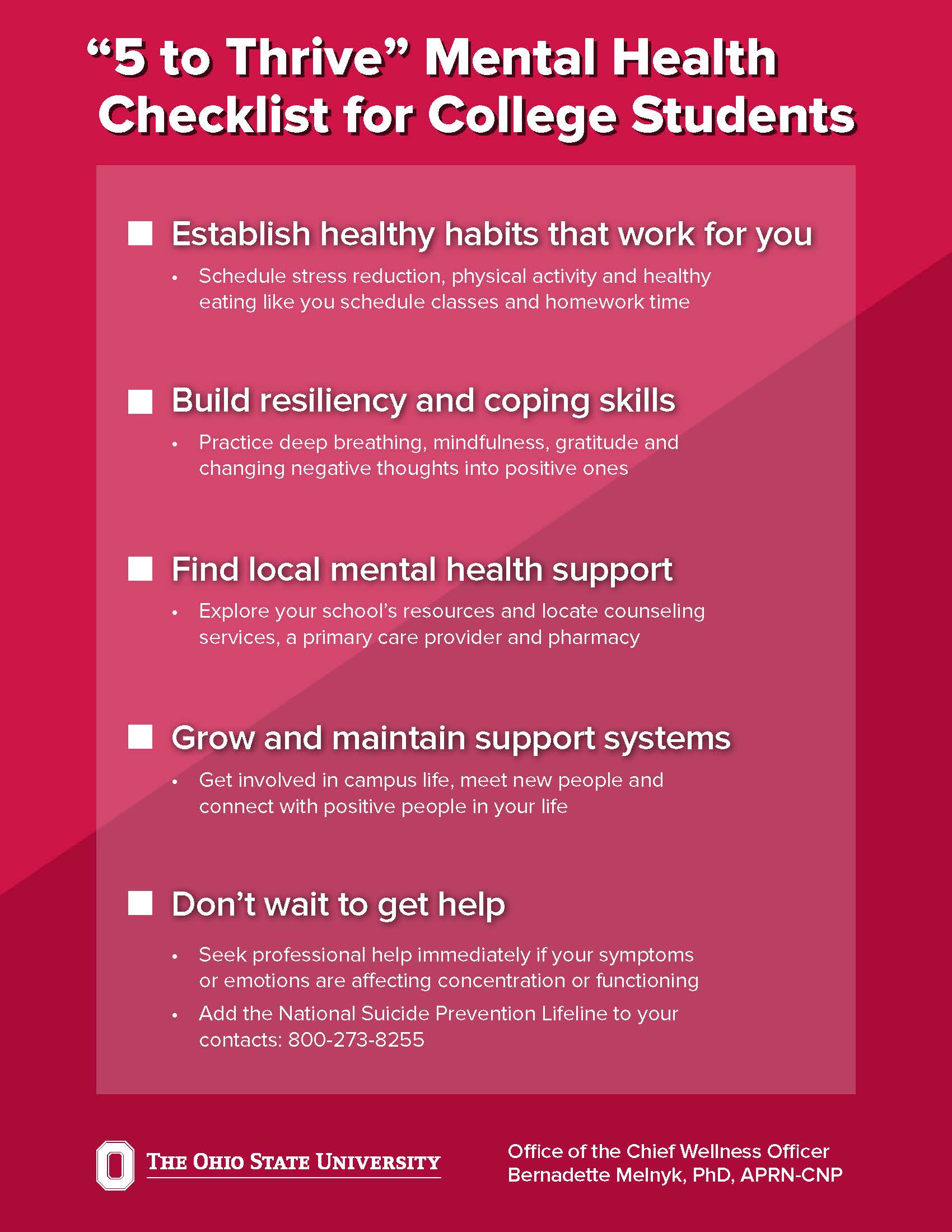
Student Mental Health Initiatives
Student mental health survey and “Five to Thrive” checklist for students get national media attention
As Mary Trabue navigated the COVID-19 pandemic and the impact it had on her school schedule – shifting her engineering classload online – she started to recognize the impact of the pandemic on her psyche. “I didn’t know what was wrong, but I just felt tired all the time because I wasn’t sleeping,” Trabue, a senior, said. “And I knew that I couldn’t continue down that path.”
Trabue’s story, unfortunately, was a familiar one for college students across the country. The Office of the Chief Wellness Officer conducted “return to campus” surveys in August 2020 and April 2021 with input from the One University Health and Wellness Council, Office of Student Life and Office of Human Resources to take the pulse of students and learn how they were coping with the pandemic.
For too many of them, the answer was “not well.” Among the 1,072 Ohio State students who responded, the survey found increases between August 2020 and April 2021 in:
- anxiety: from 39% to 42.6%
- depression: from 24.1% to 28.3%
- burnout: from 40% to 71%
- eating more unhealthy food: from 25% to 29%
- alcohol use: from 15.5% to 18%
- use of tobacco/vaping: from 6% to 8%
“Mental health promotion and access to services and evidence-based programs are going to be more important than ever,” said Bernadette Melnyk, PhD, APRN-CNP, vice president for health promotion, chief wellness officer and dean of the College of Nursing. “Two-thirds of students who are no longer in college are not in college due to a mental health issue.” She added that students who were doing the best in terms of emotional outcomes were connecting with family and friends, building resilience and engaging in physical activity.
Melnyk and colleagues at the university and The Ohio State University Wexner Medical Center developed the “Five to Thrive” student mental health checklist, an easy-to-use guide for students returning to campus to make sure they have the support they need.
The survey results and checklist were shared through media outlets nationwide, including nearly 400 TV news stations, HealthDay, U.S. News & World Report, and radio stations in New York City, Los Angeles, Chicago and San Francisco.
“These five steps are so critically important to both fortify a foundation of mental resilience and make self-care and mental well-being a priority. It’s actually a strength to recognize when you need mental health help; it’s not a weakness,” Melnyk said.
Skills to last a lifetime
Mental health programming helps students thrive
Some skills last people a lifetime, like building resilience, adding coping skills, developing healthy lifestyle behaviors and managing stress, anxiety and depression.
That’s why experts in the Office of the Chief Wellness Officer, College of Nursing and Office of Student Life developed and tailored evidence-based workshops, trainings and screenings with support from the federal CARES Act. The programs, which launched in November 2020, are continuing until June 2022 so that students can have time and flexibility to access, learn and develop these skills that will serve them beyond college.
Programs include an online personal wellness assessment, health and wellness coaching, mental health first aid virtual training, the cognitive behavioral skills-building program MINDSTRONG and the energy optimization program Health Athlete. The partnership’s signature Telehealth Wellness Hub guides students through an assessment that produces a comprehensive list of appropriate wellness resources.
The website with information and opportunities to sign up for these resources has been visited more than 8,000 times by students at all of Ohio State’s campuses. The online home of this effort is go.osu.edu/CARESwellness.
In this issue
- Diane Von Ah: Solving Cancer Care Puzzles
- Faye Wattleton: Committed to Women's Health
- Amanda Parker: Finding the Light Within
- Publications with Passion
- New Grants Roundup
- Building Update
- Advancing EBP: Clinicians Dare to Dream
- Bridge Care: Denise Williams
- Student Mental Health Initiatives
- Student Life: Back to Campus
- Health Equity Scholars
- Young Alumni Blog
- Homecoming
- Connie Gallaher: Paying it Forward
- Virtual Trails

